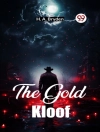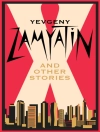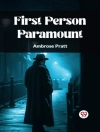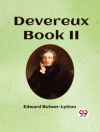In ‚The Return of Don Quixote, ‚ G.K. Chesterton masterfully weaves a narrative that reimagines Miguel de Cervantes‘ iconic protagonist, placing him in the modern world while exploring the profound themes of idealism and reality. Chesterton’s literary style is characterized by his signature wit and masterful use of paradox, offering readers both a comedic and philosophical reflection on the nature of heroism and the absurdity of contemporary life. His narrative is rich with allegory and steeped in a deep affection for the fantastical, inviting readers to consider the thin line between sanity and imagination, as well as the role of the fool in society, an aspect that resonates powerfully in a world often devoid of chivalric virtues. Chesterton, a prominent figure in early 20th-century literature, was influenced by his Christian beliefs, and his works often reflect a grappling with the dilemmas of modernity. Having established his reputation through essays, fiction, and criticism, his return to Cervantes‘ beloved character symbolizes not only a dialogue with the past but a critique of the present. Chesterton’s keen insight into the human condition, paired with his love for storytelling, compels him to revive Don Quixote’s spirit, challenging readers to embrace their inner idealists. This book is a must-read for fans of classic literature and anyone interested in the interplay between fantasy and reality. Chesterton’s eloquent prose and humorous insights encourage readers to reconsider their own perceptions of heroism and the ordinary world. In a time where cynicism often prevails, ‚The Return of Don Quixote‘ serves as a poignant reminder of the value of dreaming beyond the mundane.
Über den Autor
Gilbert Keith Chesterton (1874–1936) was an influential English writer, philosopher, and critic, widely recognized for his sharp wit and distinctive style. Chesterton’s writing encompassed a broad range of genres, including journalism, philosophy, poetry, biography, Christian apologetics, fantasy, and detective fiction. Notably remembered for his fictional priest-detective Father Brown, Chesterton was a prolific author of some 80 books, several hundred poems, 200 short stories, 4000 essays, and several plays. One of his lesser-known works, ‚The Return of Don Quixote‘ (1927), presents a unique take on medievalism and romantic satire, resonating with themes consistent across his writing such as the value of tradition and skepticism towards modernity. Chesterton’s literary style is characterized by paradoxical wit and a love of debate, which made him a compelling and occasionally controversial figure. His works — considered classics in English literature — continue to delight and challenge readers with their thought-provoking content. As a critic and a storyteller, Chesterton has been credited with influencing a multitude of later writers, including C.S. Lewis and J.R.R. Tolkien. His enduring legacy is marked by the profound insights into human nature and society that are woven throughout his diverse body of work.












